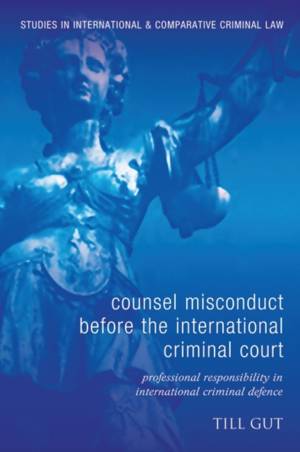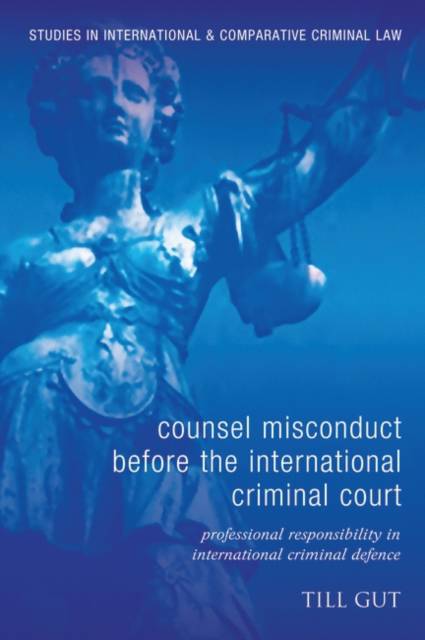
- Retrait gratuit dans votre magasin Club
- 7.000.000 titres dans notre catalogue
- Payer en toute sécurité
- Toujours un magasin près de chez vous
- Retrait gratuit dans votre magasin Club
- 7.000.000 titres dans notre catalogue
- Payer en toute sécurité
- Toujours un magasin près de chez vous
Counsel Misconduct Before the International Criminal Court
Professional Responsibility in International Criminal Defence
Till GutDescription
This is the first comprehensive study of the law governing professional misconduct by defence lawyers before the International Criminal Court. The ICC's regulatory regime was introduced in response to instances of misconduct experienced by other international and domestic criminal courts. The book first turns to how the ICC's forerunners - the International Criminal Tribunals for the former Yugoslavia and Rwanda and the Special Court for Sierra Leone - coped with misconduct, often resulting in controversy. The book also looks at the approaches that have evolved in Germany and the United States, reflecting the different role of defence lawyers in the civil and common law criminal justice traditions.
The book offers a unique insight into the professional responsibilities of defence lawyers within the various international and national regimes. Offering practical guidance on disciplinary systems and other sanctioning mechanisms, it also explores the inherent tension at the heart of the defence lawyer's role: to ensure the human right to a fair trial we want them to be zealous advocates for their clients; at the same time we ask them to commit themselves as officers of the court.
Spécifications
Parties prenantes
- Auteur(s) :
- Editeur:
Contenu
- Nombre de pages :
- 372
- Langue:
- Anglais
- Collection :
- Tome:
- n° 11
Caractéristiques
- EAN:
- 9781849463171
- Date de parution :
- 12-11-12
- Format:
- Livre relié
- Format numérique:
- Genaaid
- Dimensions :
- 156 mm x 234 mm
- Poids :
- 698 g







